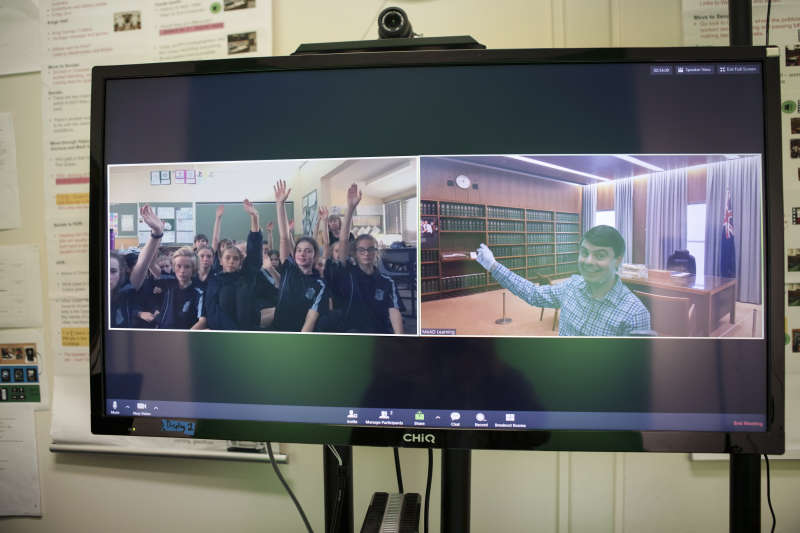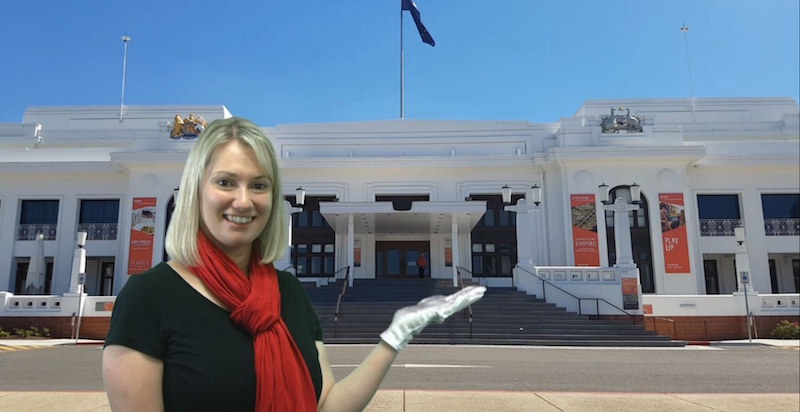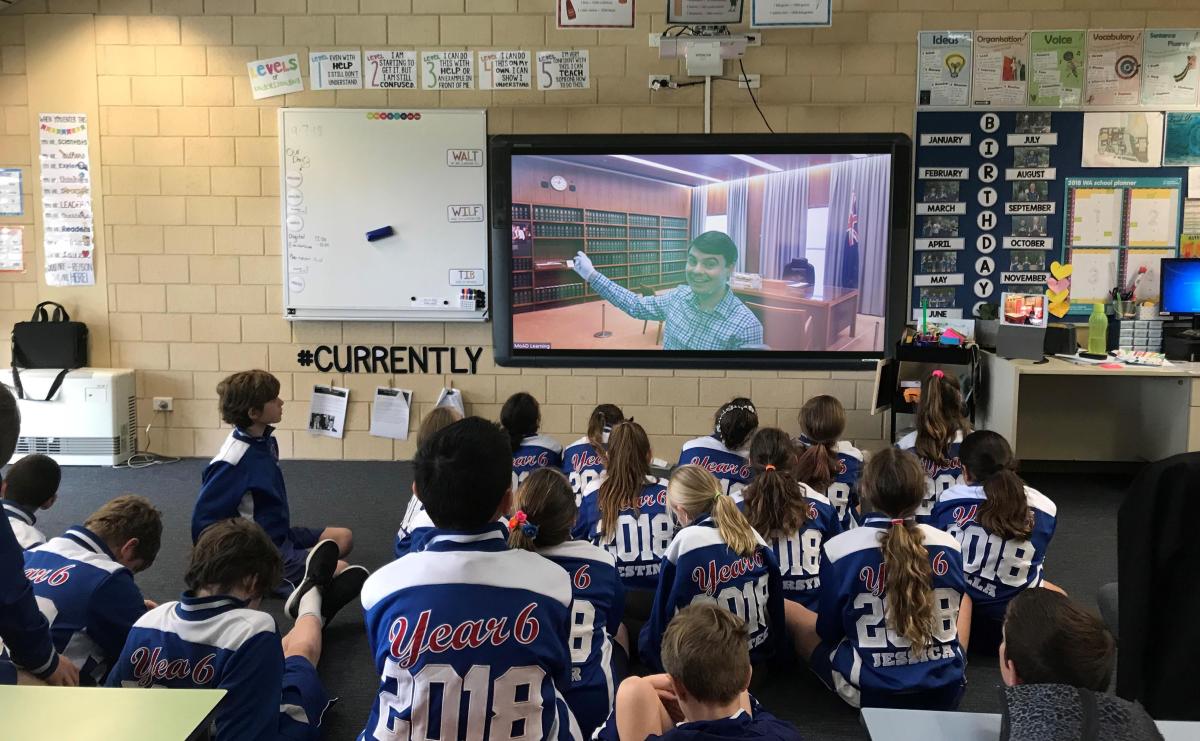When broadening its digital programming for students, the Museum of Australian Democracy (MoAD) knew that offering virtual experiences to schools via digital excursions was the logical next step.
Offered free to schools across Australia, MoAD’s digital excursions support an integral part of the Australian Curriculum.
Situated in the nationally listed heritage building in Parkes, Canberra, the renowned Old Parliament House holds the knowledge of Australia’s rich social and political history. MoAD ensures every student in Australia is encouraged to critically engage in political processes, representation and decision-making by enabling access to innovative educational tools.
‘We already have a very large on site school visitation to MoAD, and schools come from all over Australia,’ Deborah Sulway, the Manager of Learning at MoAD told ArtsHub.
‘We are part of the Parliament and Civics Education Rebate (PACER) program and that supports schools traveling to Canberra as part of their Civics and Citizenship program. But we were also very aware from our conversations with teachers that there are lots of schools who can’t physically come and visit us,’ Sulway noted.
To accommodate for distance barriers, MoAD has put in place a range of Australian Curriculum aligned online programs such as an extensive collection of Classroom Resources, which are available for students from Kindergarten to Year 12.
With the addition of the new digital exploration of iconic Old Parliament House, the barriers of distance and cost are taken away.

Digital excursion – schools can take a virtual excursion through Old Parliament House. Photo: MoAD.
High-tech education into the future
‘We actually started investigating this idea two years ago,’ Sulway told ArtsHub. ‘We have been looking at digital excursions, and using the green screen technology.’
Through the digital excursion students and teachers across Australia will be able to access a unique and holistic experience of Old Parliament House, and glimpse areas not usually accessed by visitors before.
Australia’s democratic history is brought to life through soundscapes, stories, dialogue, interactive quizzes, role-playing and games with Museum Educators. All MoAD’s online programs support learning in various subject areas including Humanities and Social Sciences (HASS), Civics and Citizenship, English and History.
With coronavirus closures imposed across Australia earlier this year, a return to school is in sight. And accessibility of the digital excursion, whether from home or from the classroom, is an important focus for MoAD.
‘Teachers can access the excursion through an iPad, and they can use their smart boards. You can even do the connection with an iPhone. So it’s really adaptable,’ Sulway said.

Digital excursion – schools can take a virtual excursion through Old Parliament House. Photo: MoAD.
The social development students gain, and the connection they feel from sharing interesting learning experiences, is something Sulway and her team are passionate about. ‘We are very aware that that students feel quite disconnected from each other. And it’s one of the really powerful things of schooling, where they have all those friendships, and all that social learning that goes on within a school environment.’
The program is not only limited to students within Australia. ‘We had our first international school participate,’ Sulway said. ‘Jakarta International School contacted us, and they have 52 students overseas, but also across Australia. So we did a connection with them, which was very exciting.’
MoAD’s progressive approach to its online delivery will ensure teachers from Australia and across the seas feel supported and connected. The spark of learning in students grows when access to unique types of online avenues are available.
In order to reach more students, MoAD has launched a donation campaign to expand their Digital Excursion program. The Henry Parkes Foundation have generously donated $10,000, which will help with this expansion. ‘It’s engaging learners in democracy … and to feel that sense of community of learning,’ Sulway concluded.





